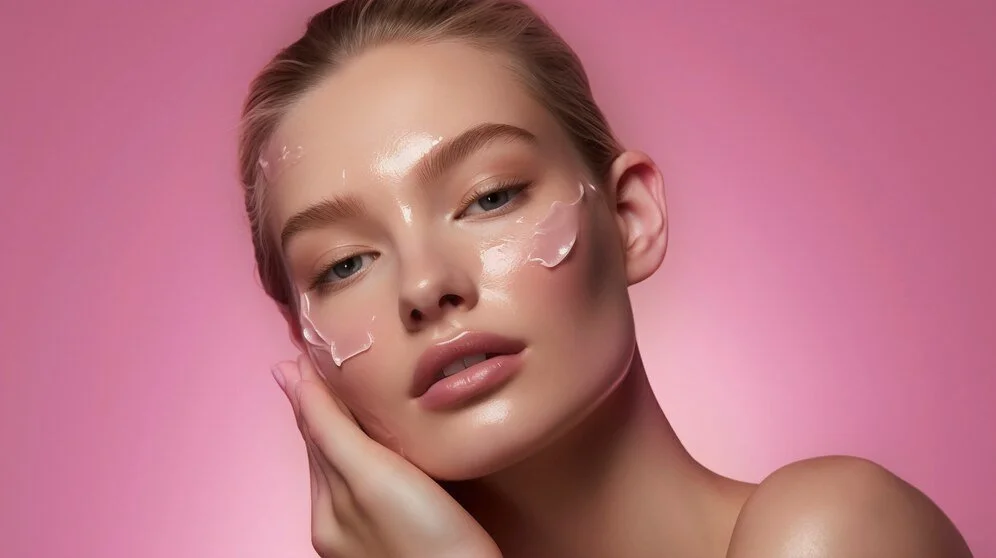Collagen Loss in Menopause: Maintaining Skin Elasticity
Last Updated 13 October 2024
Menopause is a significant milestone in a woman's life, marking the end of reproductive years and ushering in a new phase of physical and hormonal changes. One of the most noticeable effects of menopause is its impact on skin health, particularly the loss of collagen. This article explores the relationship between menopause and collagen depletion, and provides strategies for maintaining skin elasticity during this transformative period.
The Collagen-Menopause Connection
Collagen, the most abundant protein in the human body, plays a crucial role in maintaining skin structure, elasticity, and hydration. As women approach menopause, typically between the ages of 45 and 55, their oestrogen levels begin to decline dramatically. This hormonal shift has a profound effect on collagen production, leading to accelerated skin ageing.
During the first five years of menopause, women can lose up to 30% of their skin collagen. This rapid decline continues at a rate of approximately 2% per year thereafter. The loss of collagen results in various visible signs of ageing, including:
Fine lines and wrinkles
Sagging skin
Decreased skin thickness
Reduced skin elasticity
Dryness and dullness
Understanding this connection between menopause and collagen loss is crucial for developing effective strategies to maintain skin health and appearance during this life stage.
Hormonal Changes and Skin Health
The dramatic decrease in oestrogen levels during menopause significantly impacts skin health. Oestrogen plays a vital role in activating key skin cells called fibroblasts, which are responsible for producing collagen, elastin, and hyaluronic acid. These components are essential for maintaining skin's youthful appearance and structural integrity.
As oestrogen levels plummet, the skin's ability to produce and maintain these crucial elements diminishes, leading to:
Reduced skin thickness
Decreased skin elasticity
Impaired skin barrier function
Reduced skin hydration
Slower wound healing
These changes contribute to the acceleration of intrinsic skin ageing, which is distinct from extrinsic ageing caused by external factors such as sun exposure and pollution.
Lifestyle Strategies for Collagen Preservation
While the hormonal changes of menopause are inevitable, there are several lifestyle strategies that can help preserve collagen and maintain skin health:
Sun Protection: Ultraviolet (UV) radiation is a major contributor to collagen breakdown. Wearing broad-spectrum sunscreen with an SPF of at least 30 daily can help protect existing collagen and prevent further damage.
Balanced Diet: Consuming a diet rich in antioxidants, vitamins C and E, and omega-3 fatty acids can support collagen production and skin health. Foods such as berries, leafy greens, fatty fish, and nuts are excellent choices.
Hydration: Adequate water intake is crucial for maintaining skin hydration and supporting collagen structure. Aim for at least 8 glasses of water per day.
Regular Exercise: Physical activity increases blood flow, delivering nutrients to the skin and promoting collagen production. Aim for at least 150 minutes of moderate-intensity exercise per week.
Stress Management: Chronic stress can accelerate collagen breakdown. Incorporate stress-reduction techniques such as meditation, yoga, or deep breathing exercises into your daily routine.
Topical Treatments and Skincare
In addition to lifestyle changes, targeted skincare can help combat collagen loss and improve skin appearance:
Retinoids: Topical retinoids, such as tretinoin or retinol, have been shown to stimulate collagen production and improve skin texture.
Vitamin C Serums: Vitamin C is a potent antioxidant that supports collagen synthesis and protects against free radical damage.
Peptides: Certain peptides can stimulate collagen production and improve skin firmness when applied topically.
Hyaluronic Acid: This ingredient helps retain moisture in the skin, improving hydration and plumpness.
Niacinamide: Also known as vitamin B3, niacinamide can help improve skin elasticity and reduce the appearance of fine lines.
When selecting skincare products, look for formulations specifically designed for menopausal skin, as these often contain a combination of ingredients tailored to address hormonal skin changes.
Advanced Treatments and Medical Interventions
For those seeking more intensive solutions to combat collagen loss, several advanced treatments and medical interventions are available:
Hormone Replacement Therapy (HRT): While primarily used to manage other menopausal symptoms, HRT can have positive effects on skin collagen levels. However, it's essential to discuss the potential risks and benefits with a healthcare provider.
Collagen-Stimulating Treatments: Procedures such as microneedling, radiofrequency, and ultrasound therapy can stimulate collagen production in the deeper layers of the skin.
Dermal Fillers: Injectable treatments like Sculptra® contain poly-L-lactic acid (PLLA), which stimulates natural collagen production and can provide long-lasting results.
Laser Treatments: Certain laser therapies can target collagen production and improve skin texture and tone.
Platelet-Rich Plasma (PRP) Therapy: This treatment uses the patient's own blood plasma to stimulate collagen production and skin rejuvenation.
It's crucial to consult with a qualified dermatologist or aesthetic practitioner to determine the most appropriate treatment plan based on individual needs and skin concerns.
Conclusion
While collagen loss during menopause is a natural part of ageing, it doesn't mean women are powerless against its effects. By understanding the underlying mechanisms of hormonal skin changes and implementing a comprehensive approach to skin health, it's possible to maintain skin elasticity and vitality well into the postmenopausal years.
As research in this field continues to evolve, new treatments and interventions are likely to emerge, offering even more options for women seeking to preserve their skin health during menopause. The key lies in adopting a holistic approach that combines lifestyle modifications, targeted skincare, and, when appropriate, advanced treatments under professional guidance.

















